Beyond Perfection: God’s Strength in Our Weakness
In our modern society, the Bible is often dismissed as impractical, filled with stories and prohibitions that seem irrelevant to our daily lives. Many people, upon encountering the text, may feel overwhelmed by genealogies or rules, leading them to set it aside. However, the teachings of Jesus, particularly in the Sermon on the Mount, reveal a different narrative—one that is deeply practical and transformative. Today, we delve into how these ancient words resonate with our contemporary struggles, illuminating the profound truth that often, out of our brokenness, true beauty emerges.
The Practicality of the Bible
When we think about the Bible, it's easy to view it as a collection of dos and don'ts. I recall a story about a cowboy who, feeling frustrated with the Bible's rules, decided to abandon it altogether. He thought, "If all it says is 'don't do this' and 'don't do that,' what's the point?" Many people share this sentiment, feeling bogged down by the perceived impracticality of biblical teachings. Yet, the Sermon on the Mount presents us with a radically different perspective.
Jesus's teachings are not merely a list of rules but an invitation to a deeper understanding of life and relationships. They challenge the norms of the culture He lived in—and ours today. As we explore these teachings, it becomes evident that they confront the very foundations of worldly values, turning them upside down.
Kingdom Values vs. Earthly Success
One of the most striking aspects of Jesus's message is that those who seem least likely to be blessed—those who are poor, mourning, and meek—are often the very ones God lifts up. In a world that values success, wealth, and power, it's easy to feel inadequate when we measure ourselves against such standards. We look in the mirror and see our flaws, our struggles, and we wonder, "Could God really use someone like me?"
In contrast, cultures around the world often have different value systems. For example, in Japan, there is an art form called Kintsugi that celebrates broken pottery by mending it with gold or silver, highlighting its imperfections rather than hiding them. This practice embodies the principle of Wabi Sabi, which teaches us to find beauty in the brokenness. This perspective aligns beautifully with the message of Jesus, who came not to save the strong but the weak.
Jesus' Teachings on God's Blessings
In the Sermon on the Mount, Jesus begins with the Beatitudes, a series of blessings that reveal the heart of God's kingdom. He states:
- “Blessed are the poor in spirit, for theirs is the kingdom of heaven.”
- “Blessed are those who mourn, for they will be comforted.”
- “Blessed are the meek, for they will inherit the earth.”
- “Blessed are those who hunger and thirst for righteousness, for they will be satisfied.”
- “Blessed are the merciful, for they will be shown mercy.”
- “Blessed are the pure in heart, for they will see God.”
- “Blessed are the peacemakers, for they will be called children of God.”
- “Blessed are those who are persecuted for righteousness' sake, for theirs is the kingdom of heaven.”
These statements turn conventional wisdom on its head. Instead of celebrating the confident and accomplished, Jesus honors those who are humble and hurting. This radical shift in perspective is what makes the Beatitudes so powerful and relevant.
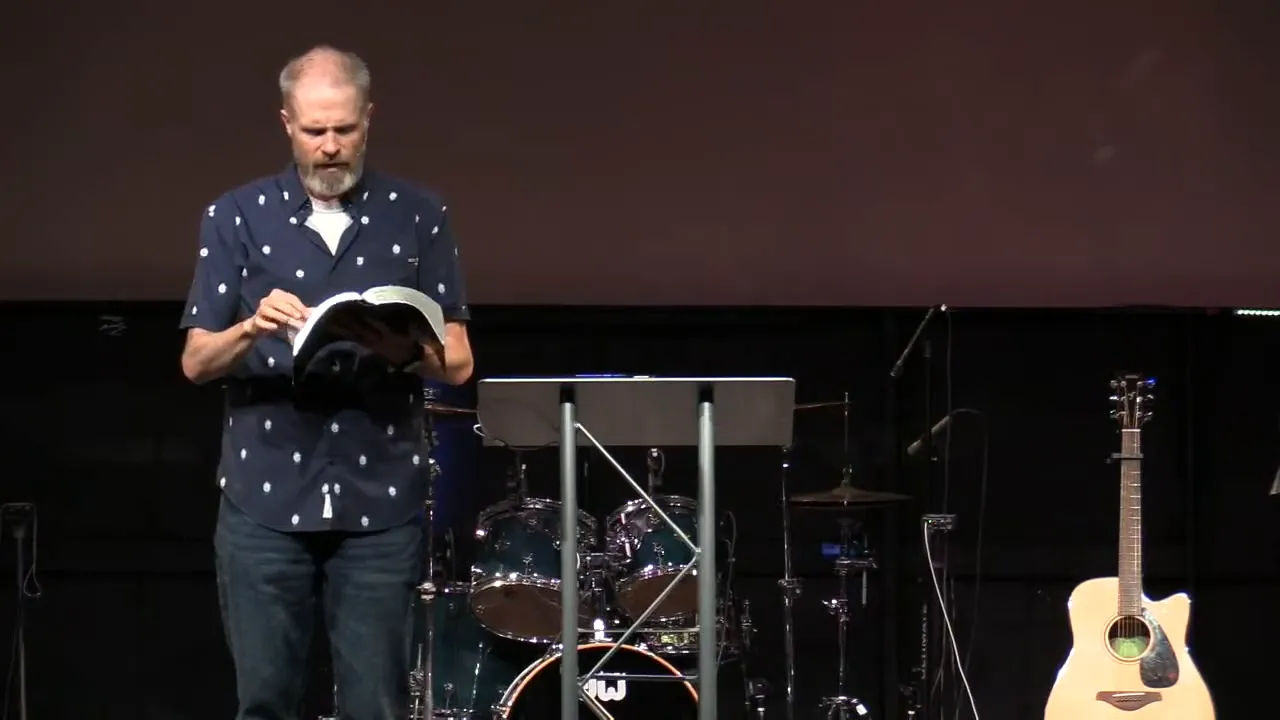
The Blessed and the Humble
Our culture often celebrates those who achieve greatness through strength and success. Yet, Jesus teaches us that God's economy operates differently. The kingdom of heaven cannot be earned through personal achievements or societal approval; it is a gift freely given to the undeserving. This realization can be liberating, as it shifts our focus from striving for perfection to embracing our imperfections.
In 1 Corinthians, we find a similar sentiment: God chooses the foolish things of the world to shame the wise. The kingdom of heaven is not for the self-righteous or powerful but for the broken and the humble. When we accept this truth, we begin to understand that our efforts do not earn us God's love; instead, His grace is a gift we receive in our weakness.
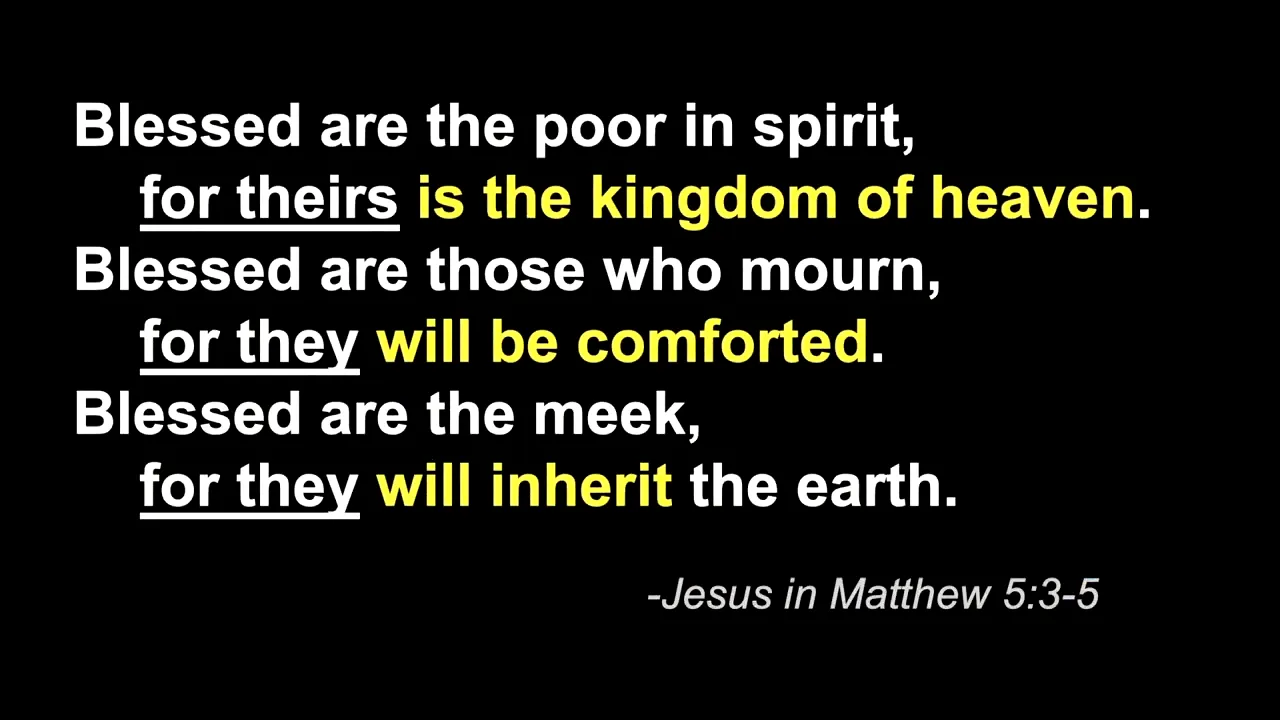
Unlearning Cultural Norms & Math
Unlearning the performance-based mindset that permeates our culture can be challenging. Many of us have been conditioned to believe that we must "fix ourselves" before we can approach God or community. This belief can lead to feelings of inadequacy and shame. However, embracing our brokenness allows us to experience God's grace more fully.
Just as one may struggle to unlearn outdated math techniques, we must also work to unlearn the idea that we must achieve perfection to be worthy of love and acceptance. Instead, we should approach God with humility, acknowledging our need for His strength and guidance.
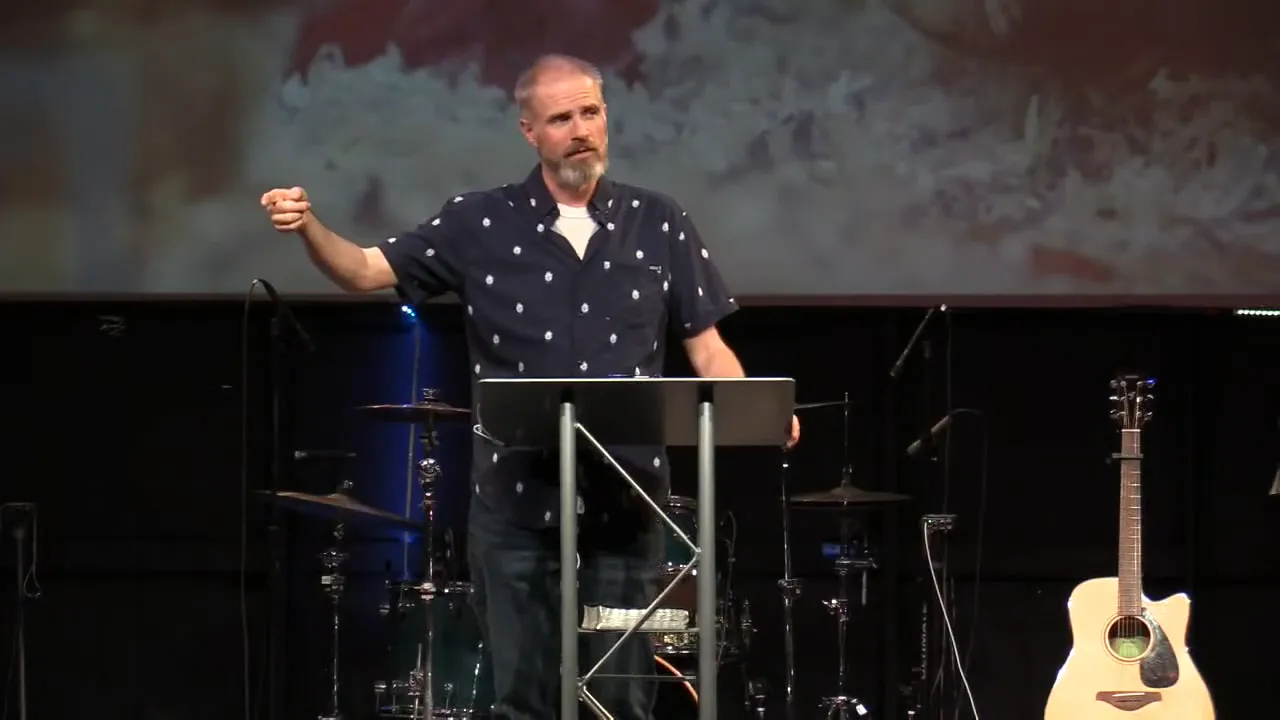
No Perfect People Allowed
As we come together as a community, it's essential to recognize that no perfect people are allowed. In fact, the only requirement to be part of our community is to acknowledge that you are not perfect. This understanding fosters an environment where we can support one another in our journeys, celebrating our imperfections rather than hiding them.
Brene Brown once said, “Imperfections are not inadequacies. They are reminders that we’re all in this together.” This perspective encourages us to embrace vulnerability and authenticity, allowing God to work through our weaknesses.
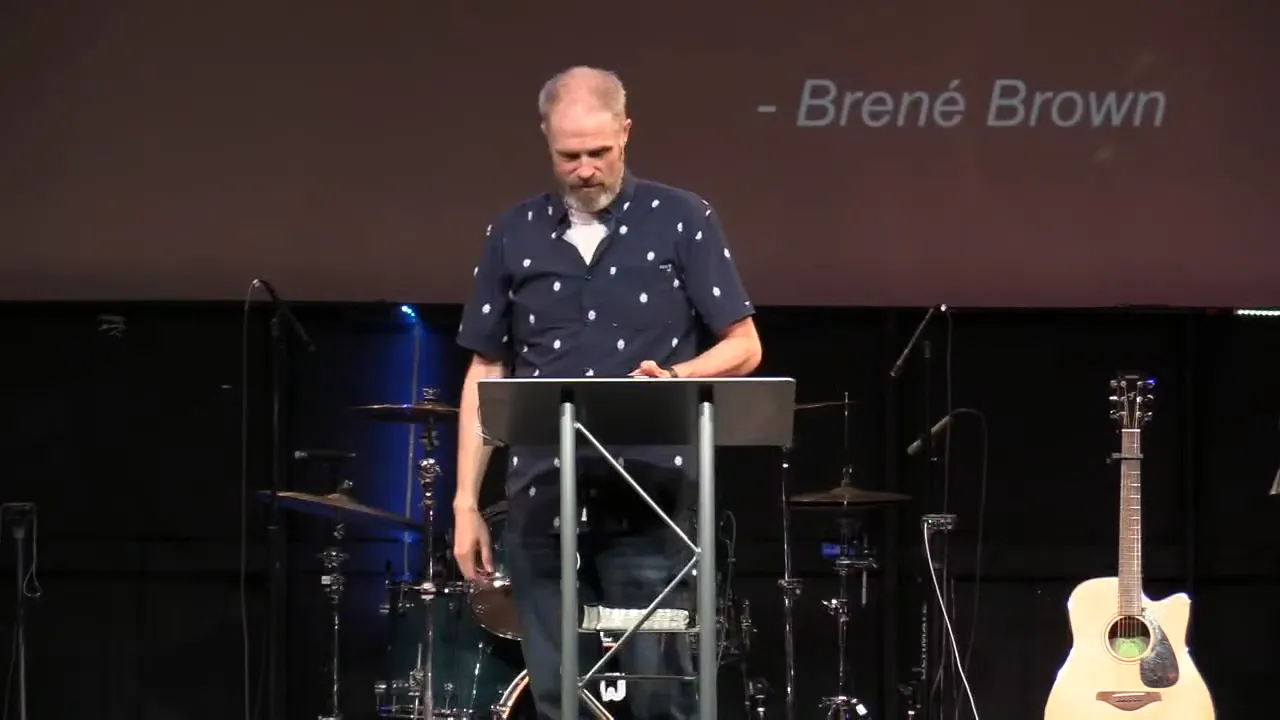
Unconditional Acceptance in Faith
For those who struggle with doubt or feel distanced from God, know that Jesus welcomes you just as you are. His message is not one of condemnation but of blessing. If you've walked away from faith because you felt unworthy, remember that your reentry point is always available. God’s acceptance is unconditional, and His blessings often begin where the world’s approval ends.
Engaging with God starts with a simple prayer: “God, I need You.” This acknowledgment opens the door to transformation, allowing us to invite His strength into our lives. As we turn toward Him, we can experience healing and restoration.
Embracing Weakness as Divine Strength
In a world that often values strength and success, embracing our weaknesses can feel counterintuitive. Yet, this is where God’s strength shines most brightly. When we acknowledge our limitations and invite God into our struggles, we discover a profound truth: His power is made perfect in our weakness.
Imagine a community where people feel free to share their struggles, doubts, and imperfections. This space becomes a sanctuary for healing, where individuals can support one another and grow together in faith. By owning our brokenness, we create an environment where God can work powerfully through us.
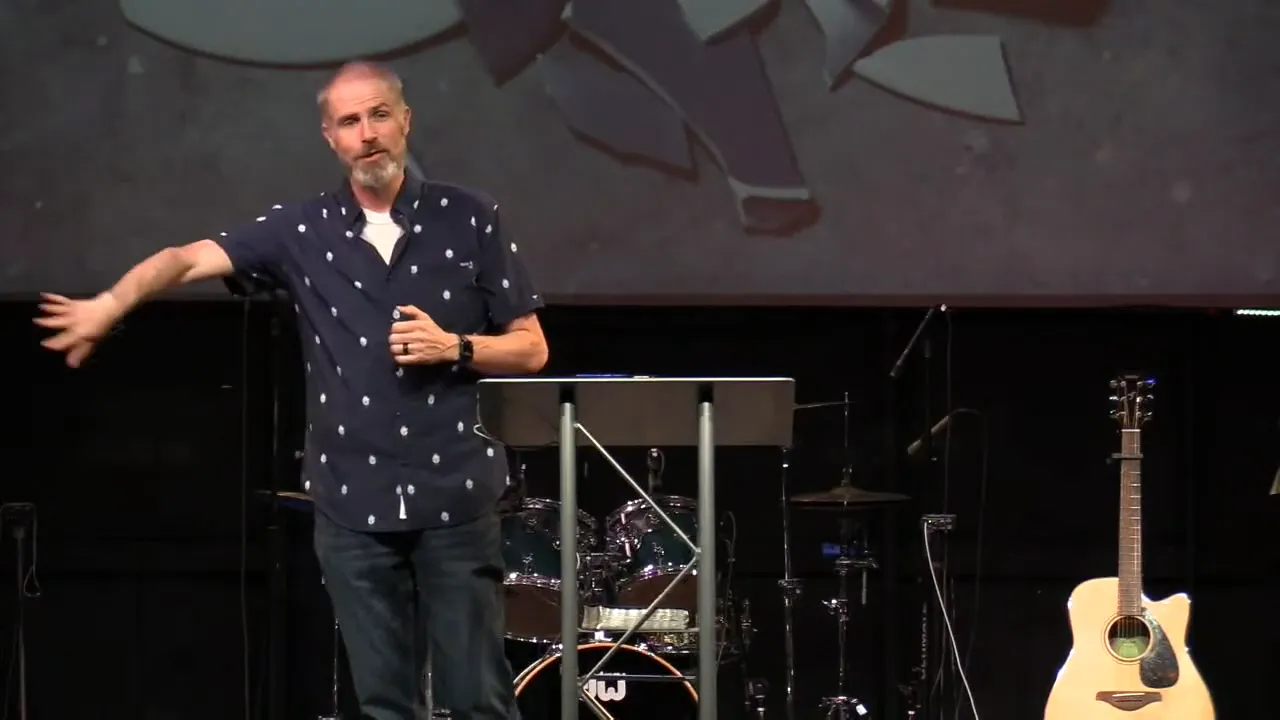
The Spiritual Wabi Sabi
What if we viewed our lives as a form of spiritual Wabi Sabi? Just as broken pottery can be mended with gold to highlight its beauty, our lives can be transformed through God’s grace. The gospel invites us to recognize that we are not discarded because of our imperfections; instead, God picks up the pieces and puts us back together.
Through our brokenness, God can bless a fractured world. By sharing our stories of struggle and redemption, we reflect His love and grace, inviting others to experience the same healing we have found.
As we conclude, let’s remember that God’s kingdom values humility, mercy, and authenticity. Rather than striving for perfection, let us embrace our imperfections and allow God to use them for His glory. Together, we can create a community where misfits feel at home, and everyone is welcome as they are. In our weakness, may God’s strength be made perfect.
